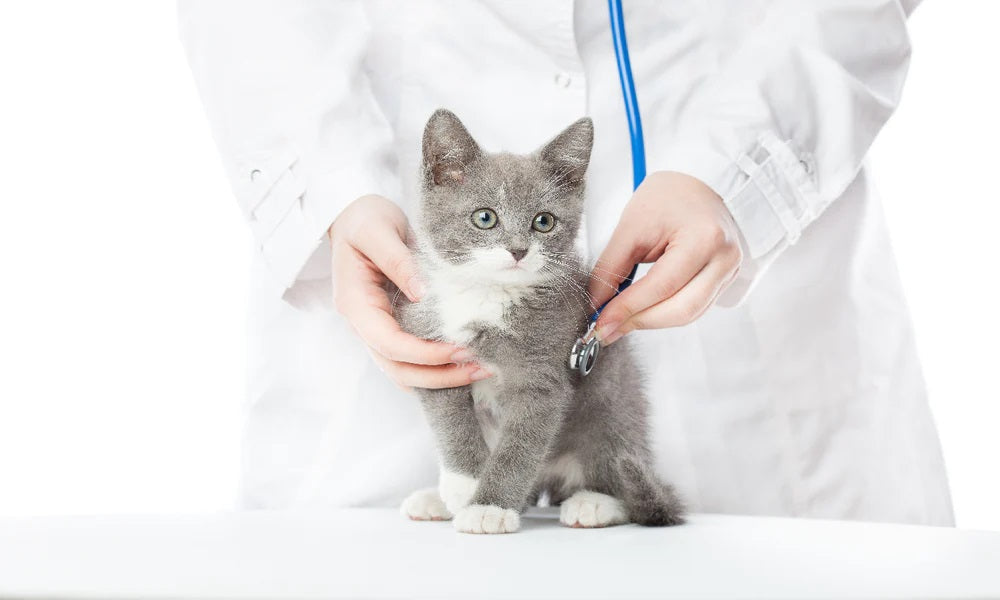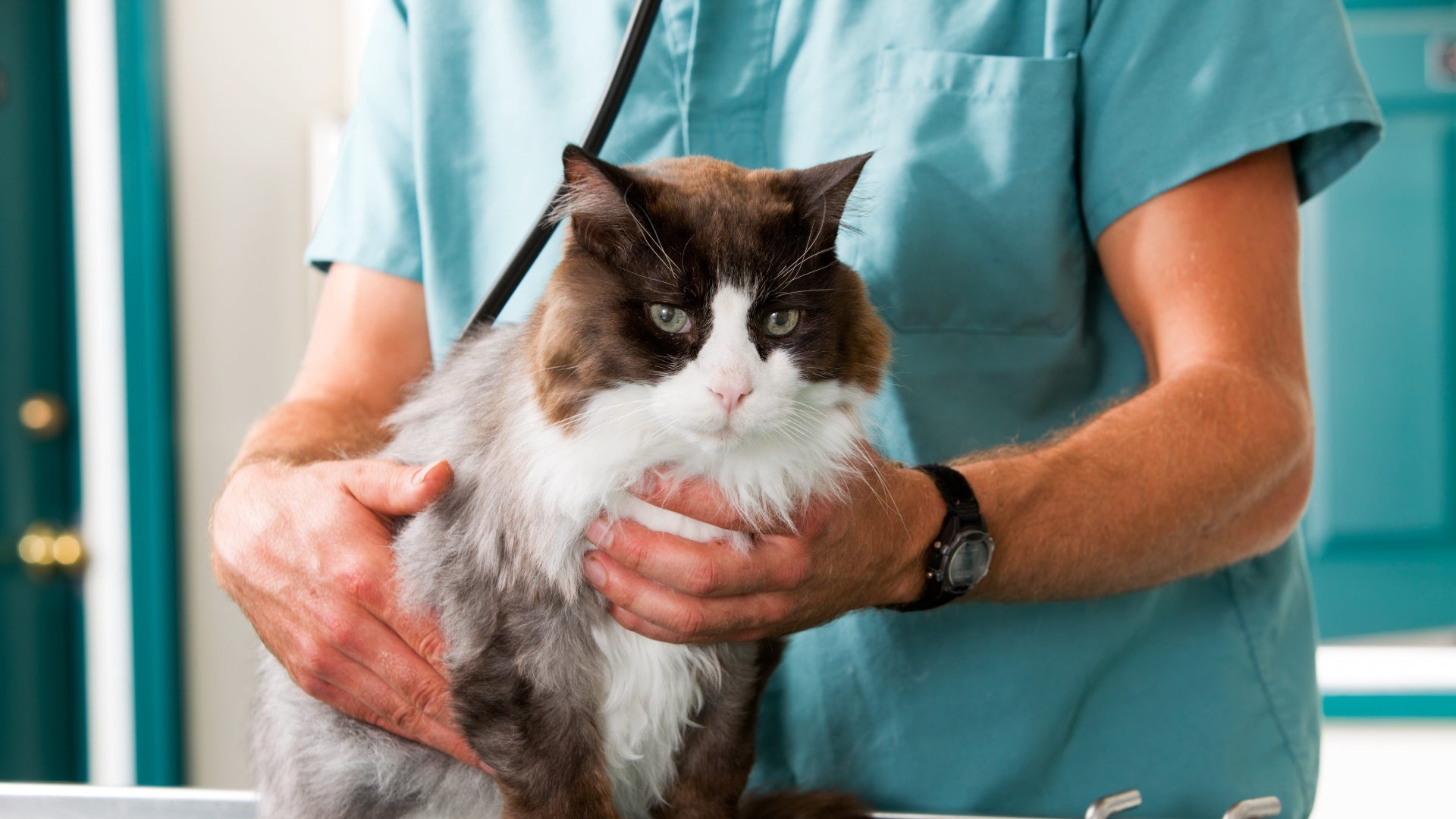
The 4 Best Natural Remedies for Cat Bronchitis to Have on Your Pet Care Checklist
There's nothing like bronchitis to ruin what should have been a perfect day for your adorable kitty. Aside from lethargy and breathing problems, this condition can cause many other difficulties.
Contrary to what many cat owners believe, resorting to "conventional" treatments is not the only option for treating feline bronchitis. So, I now propose to guide you through the best natural remedies you can use to relieve your cat during this illness.
To make your reading even more informative, I'm sharing the best information I've found from my research, along with other key information about feline bronchitis, including its causes, symptoms to watch for, and how it differs from other cat respiratory problems.
What is feline bronchitis?
Cat bronchitis occurs due to inflammation or irritation of the "bronchi," the main airways in your cat's lungs. This makes it difficult for your cat's lungs to move air in and out of the tiny sacs called "alveoli," where oxygen combines with blood to be transported to all the tissues in your cat's body.
There are two (2) types of bronchitis in cats: acute bronchitis (short-term) and chronic bronchitis (long-term). Short-term bronchitis lasts for a few days, while long-term bronchitis can last from 2 to 3 months.
Although any cat can be prone to bronchitis, studies show that this respiratory disease most commonly affects overweight cats between the ages of 2 and 8 years. Additionally, it has been found that Siamese cats are also at a higher risk of feline bronchitis than other breeds.
Let's take a quick look at the causes of bronchitis in cats...
What causes bronchitis in cats?
There are four (4) main causes of feline bronchitis: environmental irritants, allergies, infections, and parasites. Let's discuss each of these causes in more detail.
Environmental irritants
As the term suggests, environmental irritants cover any factors that may be present in a specific area and that can trigger irritation or inflammation of a cat's airways. These factors may be found inside the home or in an area where the cat typically spends a lot of time.
Some prime examples include smoke from cigarettes, pipes, and e-cigarettes, flavored chemicals in cleaning products and hair dyes, cat litter dust, and certain essential oils that can sometimes be harmful to your cat's lungs.
Allergies
An allergy occurs when your cat's immune system perceives something that is normally harmless to most cats as harmful. Their immune response will be much more drastic, leading to respiratory problems such as inflammation or irritation.
These can include tree and grass pollen, mold, small flakes of animal hair and dried skin, dust mites, and certain types of foods such as dairy products, chicken, shrimp, fish, and beef.
Infections
Fungal, viral, and bacterial infections can also trigger inflammation or irritation of your cat's airways, which can lead to feline bronchitis. The most common types of bacteria that can affect a cat's lungs are Chlamydophila felis and Bordetella bronchiseptica.
As for viruses that can irritate or inflame a cat's respiratory tract, the most common culprits are feline calicivirus (FCV) and feline viral rhinotracheitis (FVR). As for fungi, Aspergillus, Histoplasma, and Blastomyces are the most common.
Parasites
Parasites can also trigger feline bronchitis. While lungworm is the most well-known culprit when it comes to feline respiratory health, infiltration by other parasites such as Troglostrongylus brevior, Capillaria aerophila, and Aelurostrongylus abstrusus can also lead to this disease.
Here are the indicators of bronchitis to watch out for in cats...
How do you know if your cat has bronchitis?
Here are the telltale signs that your cute little feline might be suffering from bronchitis:
- Labored or rapid breathing
- Wheezing
- Cough
- Mucus release
- Lethargy
- Loss of appetite
- Fever
Now that we've covered that, let's talk about the difference between feline bronchitis and asthma...
Is cat bronchitis different from cat asthma?
The short answer is yes.
Contrary to popular belief, bronchitis and asthma in cats are two completely different conditions. Although they both relate to the respiratory tract, they have very subtle differences that are sometimes quite difficult to distinguish.
First, feline bronchitis refers to inflammation or irritation of the airways due to specific factors, such as environmental irritants, allergies, infections, and parasites. Asthma, on the other hand, is related to the contraction of the muscles in the bronchial walls.
Bronchitis is then classified as an "irreversible" obstructive pulmonary disease, especially in cases where it has already become severe. Asthma, on the other hand, is considered a "reversible" disease and can be treated by relaxing the muscles in the bronchial walls that have contracted.
Now let's see if cat bronchitis can go away on its own...
Does cat bronchitis go away on its own?
The truth is that feline bronchitis doesn't go away on its own. A cat with this health problem needs immediate and proper attention and care. Otherwise, its airways may sooner or later become permanently damaged.
If this were to happen, cat bronchitis would become an irreversible disease that could no longer be cured. It will not go away if allowed to reach a serious stage.
Let us emphasize that this is the main reason why my team and I, at HomeoAnimo, have written this article, in order to elaborate on the ways to properly treat this disease.
Now, let's talk about how long it takes for a cat to recover from feline bronchitis...
How long does it take for a cat to recover from bronchitis?
Recovery from short-term bronchitis usually takes about two (2) weeks. This assumes that the cat has received proper attention and care from the onset of symptoms, such as the administration of natural remedies that we will discuss in a moment.
However, this period varies in the case of long-term bronchitis, depending on the severity of the disease, the age of the animal, as well as the presence of any underlying health problems.
It's crucial to remember that time is of the essence when it comes to feline bronchitis. The longer you let it get worse, the greater the risk your cat will have of developing long-term bronchitis. Long-term bronchitis is a condition that is still manageable, but can never be cured.
Now let's discover the natural remedies I mentioned above...
How can I naturally treat my cat's bronchitis?
As I mentioned earlier, "conventional" medicine isn't your only option when it comes to treating feline bronchitis. Natural remedies can be just as effective in treating this respiratory condition.
Without further ado, here is our suggestion for the best natural remedies to use against cat bronchitis:
Ginger helps clear and support the airways.
According to a study published in the National Center for Biotechnology Information (NCBI) , ginger contains active components such as gingerol and shogaol that have therapeutic effects on the lungs when used to treat respiratory diseases such as bronchitis and asthma.
The study also found that these active ingredients helped strengthen weakened airways and could even be used in conjunction with established therapies such as β2-agonists.
To use ginger as a natural remedy for cat bronchitis, add a small pinch of grated ginger directly to your cat's meals. Grating the ginger is the best way to ensure your cat doesn't get any stringy parts.
You can also make ginger tea. Simply steep two or three slices of ginger in half a cup of hot water for at least ten (10) minutes. Let it cool completely. Then, give a teaspoon directly to your cat, or add this tea to their regular drinking water.
Honey helps to quickly relieve the symptoms of respiratory problems.
The BMJ Evidence Based Medicine reports that several studies have shown that “honey was more effective than usual care in improving symptoms, particularly cough frequency and severity.”
It was also highlighted that two of these studies showed that the use of honey helped reduce the expression of symptoms for about 1 to 2 days compared to people treated with cough suppressants, expectorants and antihistamines.
To use honey as a natural remedy for cat bronchitis, you can add it directly to your little feline's regular meals. However, it's important to keep in mind that you shouldn't give them more than a teaspoon of honey a day, as this could already cause some stomach problems.
As an alternative method, you can also add honey to his water bowl.
Pineapple contains a wide variety of active components that combat respiratory problems.
According to a study published in the National Center for Biotechnology Information (NCBI), pineapple is loaded with bromelain and other organic compounds that have been seen to have numerous therapeutic benefits when it comes to treating respiratory problems like bronchitis.
To use pineapple as a natural remedy for cat bronchitis, cut a piece into thin slices and mix it thoroughly into your pet's food. Remember to give only the fruit, without the husk, leaves, and skin, which can pose a choking hazard.
Also, be sure to use only fresh pineapple for this application, as canned pineapple contains a lot of syrup, which can unexpectedly raise your pet's sugar levels.
Turmeric helps improve the body's immune response against lung diseases.
AsClinicalTrials.gov reports, turmeric is rich in a polyphenol called curcumin. This molecule promotes white blood cell activity, especially when used to treat lung health problems such as bronchitis and other types of chronic obstructive pulmonary disease (COPD).
To use turmeric as a natural remedy for cat bronchitis, add a pinch of this grated, aromatic root to your cat's regular meals. Remember to fully incorporate it into the rest of their food, as turmeric on its own can be a little too spicy for your adorable little feline.
You can also use turmeric to make tea. Simply steep two or three slices of turmeric in half a cup of hot water for at least ten (10) minutes. Let it cool completely before serving a teaspoon to your cat or as a drinking water substitute, every few hours.
Let me tell you this time about a natural remedy for cat bronchitis that you should consider having in your pet care kit...
A natural remedy to have in your pet care kit
BronchAnimo is a high-quality natural remedy containing homeopathic ingredients that promote your pet's respiratory capacity and health. It is specially formulated for pets to support them during respiratory conditions and difficulties, whooping cough, and to clear congestion due to mucus buildup.
To use BronchAnimo during feline bronchitis, simply spray it once a day, either directly into the mouth or into the drinking water, until symptoms disappear. In addition to helping maintain ideal respiratory capacity, this natural remedy also promotes better lung health.
Conclusion
I hope you learned a lot and will continue to follow our blog for more articles as informative and practical as this one.
Don't forget to sign up for our Free Animal Health Referral now.




















4 comments
Merci pour votre message. Il nous fait un plaisir de vous aider avec la santé de votre chat. Nous vous avons fait parvenir un courriel afin de bien vous guider.
Cordialement, Homéoanimo
Homéoanimo
Quel produit acheter pour aider mon chat de 5 ans à beaucoup mieux respirer à cause bronchite chronique depuis 1 an et demi c’est trop dur de le voir comme ça
Michel Denise
Merci,vos conseils sont précieux
Samia yakbah
Très utile !! Merci 🤩
Artus
Leave a comment
This site is protected by hCaptcha and the hCaptcha Privacy Policy and Terms of Service apply.